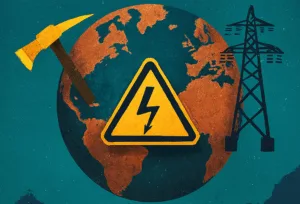2024 will be a decisive year on many fronts—particularly for the global energy system. The year begins with the momentum generated by the historic agreement signed in Dubai at the close of COP28 in December, which the Executive Secretary of the UN Climate Change body described as “the beginning of the end of the fossil fuel era.”
While this agreement introduces political and economic pressure on governments, companies, and investors alike, it also invites skepticism. Fossil fuels—particularly oil and coal—have been repeatedly declared obsolete for over a decade, yet their consumption reached record highs in 2023.
To put this in perspective, the latest Statistical Review of World Energy by BP—one of the most consulted documents by analysts examining global energy trends—shows that fossil fuels (coal, oil, and natural gas) still account for 82% of total primary energy demand.
In a comparison made by David Rapier, if fossil fuel consumption stood at 87% in 2010, and the current rate of decline continues, it would take approximately 200 years to phase them out of the global energy mix.
This is happening despite the boom in renewable energy sources like solar and wind, whose usage also grew by more than 7%. However, even tripling investment deployment to expand capacity would be insufficient—and perhaps unrealistic—to fully replace the demand for oil, gas, and coal.
In this context, 2024 will be yet another year where governments must pay close attention to their energy systems, monitor demand behavior, and focus efforts on their most pressing challenges—balancing decarbonization goals with energy security. Failing to do so could lead to very costly consequences.
This year, it is expected that OPEC+ countries will behave quite differently from non-members, which could trigger imbalances in the energy system. The brunt of this pressure will fall on countries unable to absorb the costs brought by shifting hydrocarbon production patterns—similar to what Europe experienced during its recent energy crisis, which drove prices up amid the post-COVID economic rebound.
One path forward to confront this year’s challenges is to mature the conversation, which currently revolves heavily around energy transition, and begin talking seriously about decarbonization. That means both decarbonizing energy sources and the uses of that energy—since decarbonization is the clearest and most accurate action to address climate change.
If we agree that humanity’s greatest challenge is to limit climate change without hindering sustainable development and the fight against poverty, then we must remember that tremendous energy is required to achieve this. After all, it has been proven that energy is what has enabled humanity’s great project—as Elaine Scarry described it—to progressively relieve human suffering.
Carolina Rojas Gómez
Student, Executive Master of Management in Energy
BI Norwegian Business School


